 8 Winning Tips to Ace the PI Cognitive Assessment [2025]
8 Winning Tips to Ace the PI Cognitive Assessment [2025]
The Predictive Index (PI) Cognitive Assessment is a challenging psychometric test designed to evaluate your verbal, numerical, and abstract reasoning skills within a remarkably tight timeframe—just 12 minutes for 50 questions.
This means you have roughly 14 seconds per question, making speed and accuracy equally critical. With competition fierce for top roles, scoring high on the PI Cognitive Assessment can significantly impact your employment prospects.
Our PrepPack is tailored to help you ace the PI Cognitive Assessment. It includes:
- Diagnostic Tests - Taking a diagnostic test will help you pinpoint the areas where you need the most improvement.
- Focused Practice Tests - Allow you to hone your skills in specific subjects to boost your performance.
- Comprehensive Study Guides and Video Tutorials will help you gain in-depth knowledge to master every section of the test.
In this article, you'll discover eight actionable, expert-approved tips designed to boost your confidence, sharpen your cognitive skills, and ensure you achieve your highest possible score.
- PI Cognitive Diagnostic Test with personalized feedback
- 5 Full PI Cognitive Simulations
- 43 PI Cognitive Practice Tests
Of all question types: Numerical, Verbal, Abstract/Visual - 11 Study Guides & Video Tutorials
Tip 1: Understand the Predictive Index Cognitive Test Format
The first critical step in preparing for the PI Cognitive Assessment is thoroughly understanding its format and its question types. The assessment includes three core categories of questions:
- Numerical reasoning: Tests your ability to interpret numbers and solve mathematical problems quickly.
- Verbal reasoning: Evaluates your comprehension and logical reasoning abilities through vocabulary and linguistic puzzles.
- Abstract reasoning: Assesses your skills in recognizing patterns and relationships in visual information.
Becoming familiar with these PI Cognitive question types and their categories enables you to approach the exam confidently, significantly improving your efficiency and accuracy.
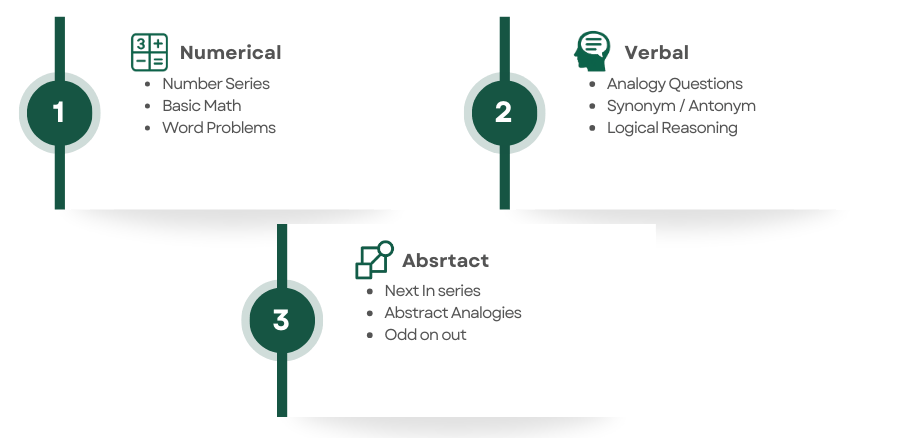
Tip 2: Take a Diagnostic Test First
Starting your preparation with a diagnostic test is highly beneficial. Here’s why:
- Identify strengths and weaknesses: Recognize which areas require the most improvement.
- Optimize your study plan: Tailor your preparation strategy specifically to address identified weaknesses.
- Measure your progress: A diagnostic test provides a baseline, helping you clearly track improvement over time.
Using diagnostic insights strategically will make your preparation targeted and efficient, significantly improving your performance on test day.
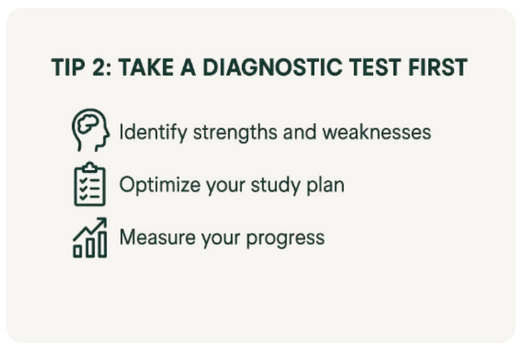
Tip 3: Master Time Management
Effective time management is essential to excel on the PI Cognitive Assessment. Given the strict 12-minute limit for 50 questions, consider the following strategies:
- Prioritize easy questions first: Quickly solve the questions you find straightforward to secure points early.
- Make strategic guesses: If you’re stuck, quickly eliminate obviously incorrect options and make an educated guess.
- Keep moving forward: Don’t waste precious time on tough questions initially; mark them to revisit if time permits.
By practicing these strategies consistently, you'll enhance your ability to maximize your score within the time constraints.
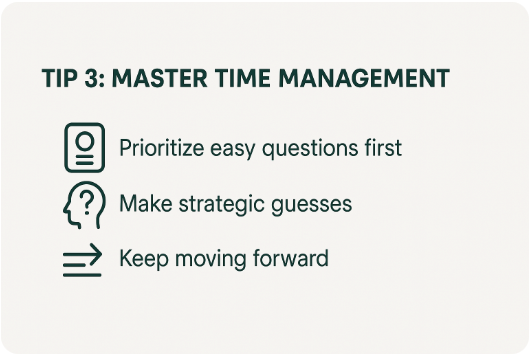
Tip 4: Learn Effective Solving Methods
Adopting effective problem-solving strategies will greatly enhance your test performance. Here are some valuable approaches:
- Numerical questions: Practice mental arithmetic and quickly identify key numerical information.
- Verbal questions: Develop quick reading and logical reasoning skills to swiftly analyze linguistic patterns.
- Abstract questions: Familiarize yourself with common visual patterns, relationships, and spatial transformations.
Consistent practice of these techniques can drastically reduce the time it takes to answer questions, increasing your overall score and confidence.
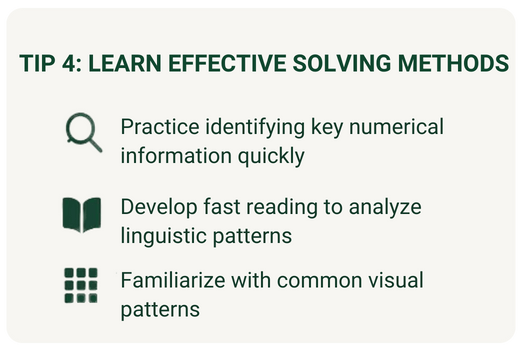
Tip 5: Practice Regularly with Simulations
Regular practice with realistic simulations is crucial to mastering the PI Cognitive Assessment. Consider these benefits:
- Build test-taking endurance: Regularly timed practice helps manage test fatigue and maintain high performance throughout the exam.
- Increase familiarity: Consistent exposure to test conditions reduces anxiety and improves performance.
- Refine your strategies: Frequent practice allows you to experiment with and refine your test-taking strategies effectively.
Incorporating regular simulations into your study routine ensures you're well-prepared and confident on the day of the test.
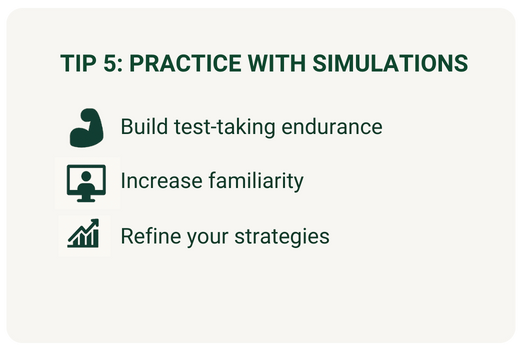
Tip 6: Target Weak Areas
Focusing on your identified weak areas can significantly boost your overall test performance. Here’s how to effectively target weaknesses:
- Focused study sessions: Dedicate specific sessions to practicing question types you struggle with the most.
- Utilize resources: Leverage specialized study guides, drills, and tutorials designed to address specific cognitive skills.
- Consistent review: Regularly revisit challenging topics to reinforce your understanding and improve your abilities.
By directly addressing your weaker areas, you'll efficiently improve your skills and confidence, maximizing your potential to succeed.
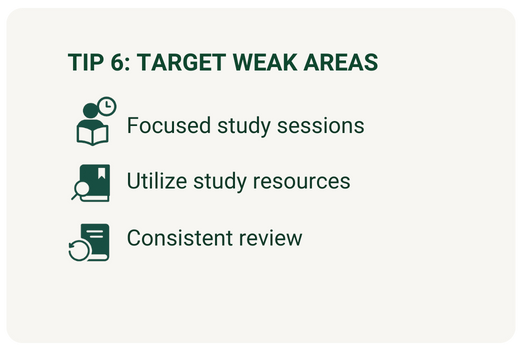
Tip 7: Keep Calm Under Pressure
Maintaining composure during the test is vital to achieving a high score. Here are a few tips:
- Breathing exercises: Simple deep breathing techniques can quickly reduce stress.
- Positive visualization: Visualize successful outcomes to boost your confidence.
- Focused mindset: Remind yourself to stay focused on one question at a time, rather than worrying about the test as a whole.
Staying calm and collected under pressure significantly enhances your cognitive performance and accuracy.
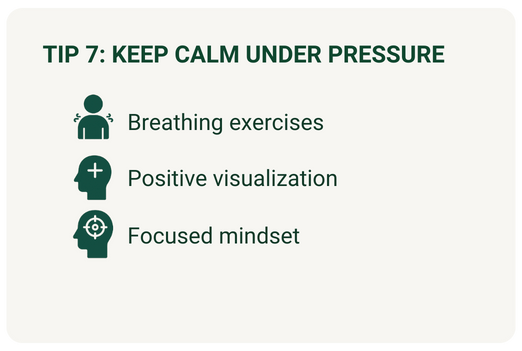
Tip 8: Understand the Value of a High Score
Scoring high on the PI Cognitive Assessment goes beyond just passing. It can significantly impact your professional life by:
- Improving job opportunities: High scores set you apart from other candidates.
- Increasing potential salary: Employers often link higher test scores to stronger capabilities and better compensation packages.
- Accelerating career growth: Demonstrating cognitive excellence opens doors for future advancement and promotions.
Recognizing these benefits can motivate you to thoroughly prepare and aim for your best possible performance.
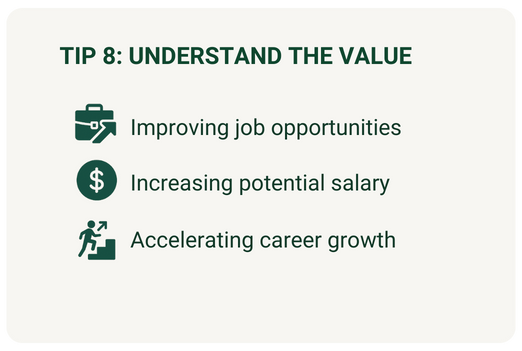
By following these eight expert-approved tips, you'll be well-equipped to tackle the PI Cognitive Assessment confidently and efficiently. Preparation is key, so begin practicing early, focus strategically on your strengths and weaknesses, and maintain composure under pressure. With dedicated effort and the right strategies, you can maximize your potential and secure the best possible results for your career advancement.
Navigate the Predictive Index Category:
key pages: PI Scores | PI Personality Types | Free PLI Cognitive Assessment Questions
FAQs
Getting a question wrong doesn’t cost you points, and in multiple-choice tests, you always have a good chance of guessing correctly. In other words, if you don't know the answer or don't have much time, go ahead and guess. It's a good way of getting a few more correct answers.
Most people DO NOT answer all 50 questions in 12 minutes. In fact, only 1% of the population answers more than 40 questions correctly in the allotted time.
You should aim to answer as many questions as you can. This means taking a guess even if you’re not sure of the answer, and especially when you feel like you’re stuck. You can always go back to earlier questions, so try to first move forward and solve questions you feel confident with.
The overall purpose of cognitive tests such as the PI test is to provide the employer with a broad holistic evaluation of the cognitive capacity of incoming job applicants.
The test aims to reveal how your brain functions in terms of attention, speed, memory, and visualization.
These skills are necessary to ensure that you are capable of handling certain roles and their complexities and that you are able to solve problems.
The PI Cognitive Ability Test isn't considered much more difficult than other cognitive tests.
However, cognitive ability tests are designed to be challenging, and the PI Cognitive Assessment is no exception.
The challenge lies in the test's format, which requires you to answer a large number of questions in a very short time span.
The challenge is staying calm and in the right mindset and not sacrificing accuracy for speed (i.e., answering quickly but incorrectly).
We have helped tens of thousands of job seekers before you to prepare for this type of test, and we can help you too!
Even though the PI Cognitive Assessment shares some common features with IQ tests, it does not examine your IQ level.
Its purpose is to check your adaptability and assess your ability to handle complex problems deemed necessary for certain jobs.
The test measures your ability to do the following:
- Understand complex ideas
- Solve problems
- Adapt effectively to a new environment
- Learn from experience
- Reason
- Overcome obstacles
The PI Cognitive Assessment is backed by science and meets the standards of both the APA (American Psychological Association) and the SIOP (Society of Industrial & Organizational Psychology).
You will most likely receive an email with a link to a PI Learning Indicator online testing platform containing instructions for your specific test.
Some employers choose to conduct the test in a controlled environment at their offices or at a testing center. If you have to take the test at a testing center, you'll be notified and given a date and location.
Yes you can, and you should. After all, your future employment depends on it.
The test provider, Predictive Index, discusses the benefits of preparation on its website:
"Experience shows that if someone is used to these types of assessments, he or she will be able to get consistently closer to his or her ‘capacity’ or maximum score.
In other words, it is actually ideal when an assessment taker is trained or familiar with the PI item types, as it gives the company the best possible insight into the candidate’s true potential."
You can reach your full capacity within just a few days by preparing with our specially tailored PI test simulations and practice drills.
This way, by the time you take the test you'll be very familiar with the questions and format.
The following companies use the PI LI Cognitive Exam:



